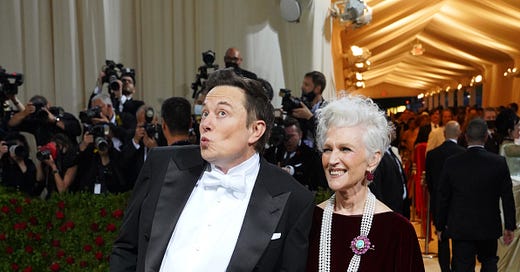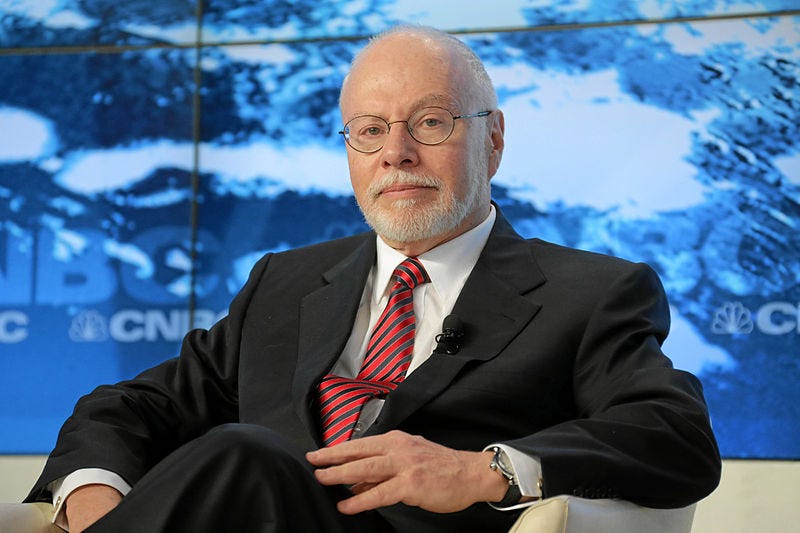The ever-growing battle between Elon Musk and Twitter entered its latest round this week. On Wednesday, after Elon Musk accused Twitter of resisting his attempts to gather data on bot numbers, Twitter played an unexpected hand, granting him access to the “firehose.”
The “firehose” is the unfiltered stream of tweets and the data about them—locations, usernames, information on the users. It’s been the subject of controversy before. Over the years, Twitter has cut off firehose access to other data-mining companies who’ve been accused of abusing the system.
Essentially, Twitter granted Musk access to all its tweet data. It’s an unusual move because Twitter may have surrendered enormous leverage and could signify it wants to close the deal fast. Musk hasn’t responded publicly as of this writing.
What does this mean for the future of Elon Musk vs. Twitter? Will Musk end up buying the platform? What would private ownership of Twitter mean for the public discourse?
I spoke with Ron Orol, Senior Editor at The Deal, the go-to media resource on M&A and dealmaking. For almost twenty years, Orol has covered the activist shareholder beat, writing about shareholder contests involving major companies including Twitter.
Copyright Getty Images. Used with permission.
Geoff: What does it mean that Twitter gave Elon Musk access to the firehose?
Ron: It’s surprising that Elon Musk did not have access to the firehose in the first place. This is Elon Musk’s first foray into shareholder activism. Everything is very unconventional about this. Everything about this deal goes against the way massive multibillion-dollar mergers happen. There are ways that he could use his Twitter followers as leverage, which is something that other bidders are not able to do.
When he struck the deal to buy Twitter on April 25, he apparently waived the right to look deeply into Twitter's internal workings. Usually when big deals are announced, different bidders show up and they do due diligence that often takes months. They have the access to something called the data room where they look at all the important data on the company. But Musk first appeared as an investor on April 4, and then soon after launched the hostile bid and a deal was struck very quickly on April 25.
To me, it seems sloppy that Musk was not able to look into Twitter's internal workings and get access to this data before he struck a deal. But it sounds like he and the company were eager to get a deal together very quickly. It is likely the company viewed it as a good bid, before tech stocks started to deteriorate.
Geoff: Were there any shareholder contests that led up to the recent saga between Elon Musk and Twitter?
Ron: Before Elon Musk showed up, Elliott Management, the hedge fund led by Paul Singer, had settled with Twitter in a deal in March 2020. Elliott’s criticism was that Jack Dorsey was the CEO of two companies, Twitter and Square, now renamed Block. How could you be the CEO and work effectively leading two multi-billion dollar market cap companies?
Elliott put the shareholder activist Jesse Cohn, a managing partner at Elliott, on the board. Jack Dorsey ultimately left as Twitter CEO in November 2021. I wonder if that opened the door to Elon Musk's approach, perhaps feeling Twitter was vulnerable without Jack Dorsey there. I don't know for sure.
Paul Singer, the founder of Elliott Management. Courtesy of the World Economic Forum under a Creative Commons License.
Geoff: What were you thinking when you first learned about Musk’s takeover bid?
Ron: We all found out that Elon Musk was interested in Twitter on April 4, when he filed a regulatory form with the SEC [Securities and Exchange Commission] called a Schedule 13G. This form is usually for passive investors who don’t have plans to get actively involved in the company. [Shareholder] activist advisers point out that Musk was probably supposed to file a different form called a Schedule 13D. It’s required when you cross a 5 percent stake and you're an activist, or you have some active interest in having conversations about the strategic direction of a company.
Twitter’s stock went wild and jumped. Everybody was like, “What's going on?” And he reported a 9.2% ownership stake. In a later filing, Twitter revealed Musk had expressed an interest to the company in getting a seat on the Twitter board, considering the possibility of taking Twitter private, or starting a competitor. He clearly had activist intentions prior to the 13G disclosing. It goes with my thesis that he has an unconventional way of approaching activism. Carl Icahn would not make a mistake and file a 13G.
Despite offering him a board seat at first, Twitter couldn't reach a deal for him to get on the board because he would not agree to limit his public statements regarding Twitter. This appears to mean Musk wanted to get on Twitter's board and continue to tweet his criticisms of Twitter. Corporate directors typically are restricted from publicly criticizing the companies they serve. Twitter denied him a board seat knowing that this could unleash a hostile takeover bid from Musk. It ultimately did.
Geoff: Is this a new phenomenon, shareholder battle by Twitter? Is this something that we’ll see more of in our social media age?
Ron: Elon Musk did point out that of the richest people in the world, he's the only one that really tweets a lot. So he's probably trying to renegotiate this deal. He realizes he bought it at the top of the market, and some people have argued that he doesn't really care about the bots.
Elon Musk’s bid for Twitter coincided with the massive stock market decline of tech companies. Twitter's shares dropped and is now trading at $40.53. They were trading at one point at $33.68, so significantly below his $54.20 share deal.
There’s speculation he’s hoping a bot problem will allow him out of the deal or into renegotiations for a lower price. He’s tweeted about it, bringing widespread interest to his concerns. Potentially one option is to renegotiate at a lower price because he discovers this huge, big bot problem. Then Twitter gave him the firehose, which is data on 500 million tweets a day. If anyone has access to that, they can go through it and mine data, find correlations, surveil people to figure out who they are.
Twitter stock, 2022 year-to-date.
Geoff: Why does Elon Musk want Twitter so badly?
Ron: Elon Musk uses Twitter to speak directly to his 97 million Twitter followers and is able to get his message across to a huge number of people. And sometimes he tweets something, and then dozens of reporters will write articles based on that tweet, particularly as it relates to this Twitter deal.
I think he's been frustrated by the way the media has treated him. He has an impact in being able to mold public opinion through Twitter. I mean, he’s suggested that nobody should be permanently banned from Twitter. You should only have temporary bans. He said he would lift the Twitter ban on Donald Trump, if he owned it. So he clearly feels like he would have a big influence on political discourse if he were to own this company.
Geoff: If Musk succeeds in taking Twitter private, will that be good or bad for society?
Ron: Just a little bit of background on Mark Zuckerberg and Facebook. In some ways Facebook is a publicly traded company. But with super-voting shares, Mark Zuckerberg controls the majority of the vote, which means he controls the board, which means that an activist investor or a hostile bidder couldn't try to take over the board or change the board. A lot of institutional investors complain that there is no accountability at Facebook, that Mark Zuckerberg can run the company however he wants.
Facebook has a huge impact on political discourse in many different ways, in the same way as Twitter. Many observers view this as a big risk, that this one individual will control this big, very influential social media network. These hugely influential social media networks, Facebook and Twitter, will essentially be controlled by two people after this.
Geoffrey Cain is Senior Fellow for Critical Emerging Technologies at the Lincoln Network, a tech-policy think-tank in Washington DC.






